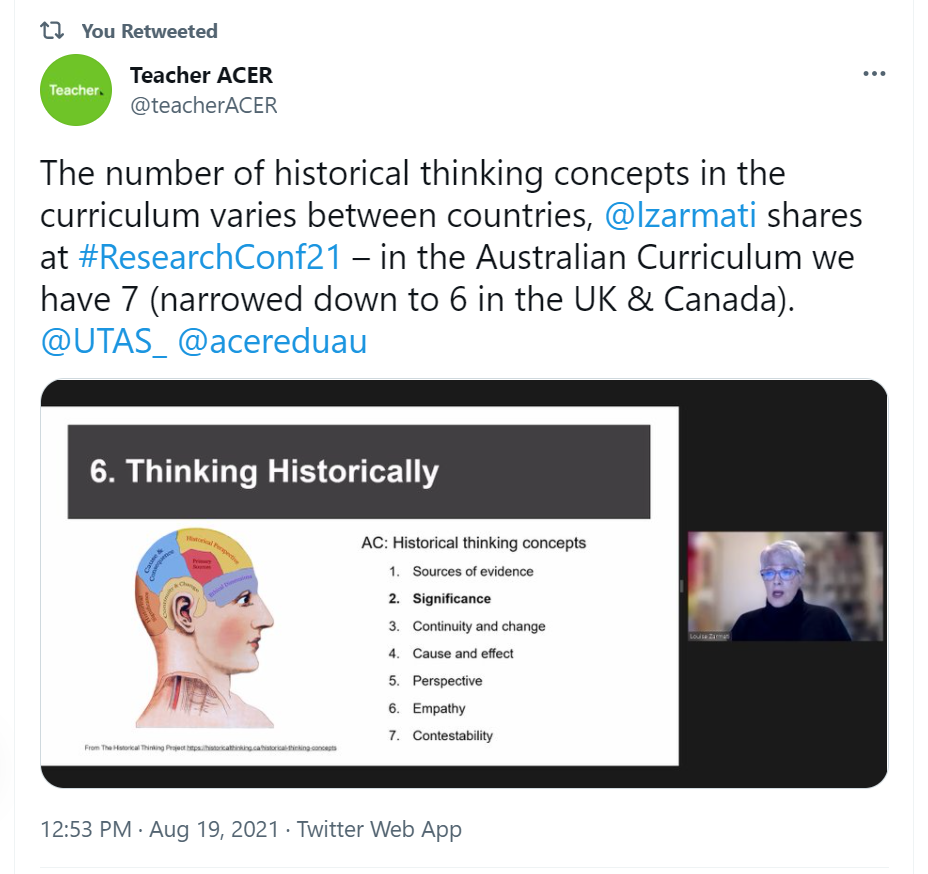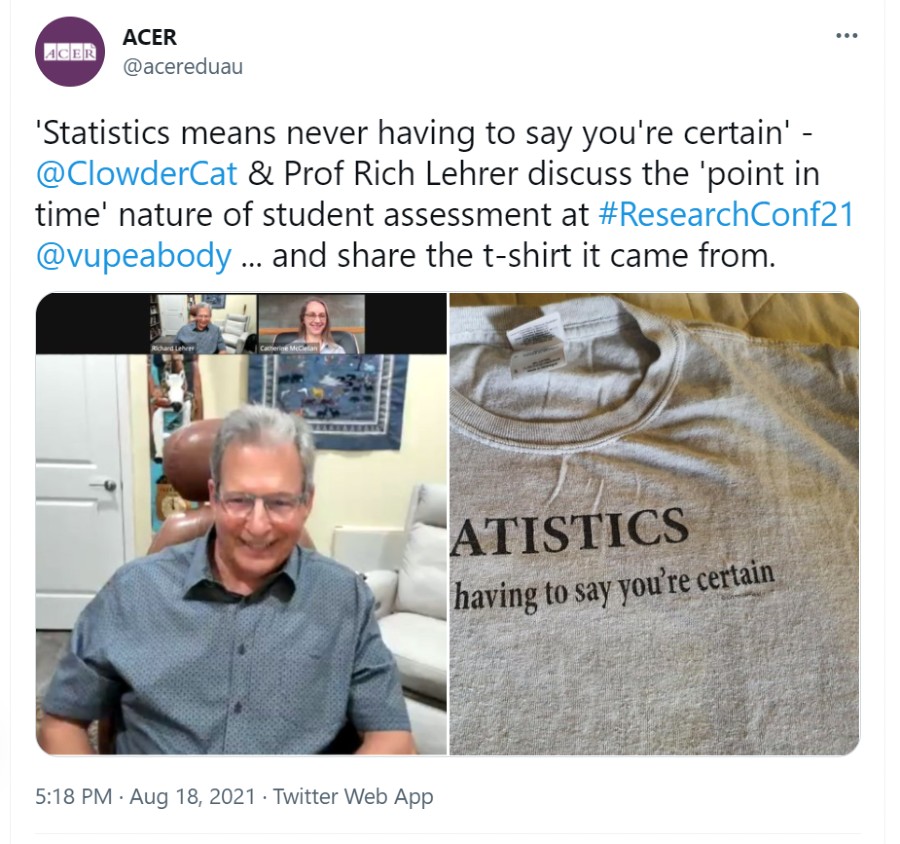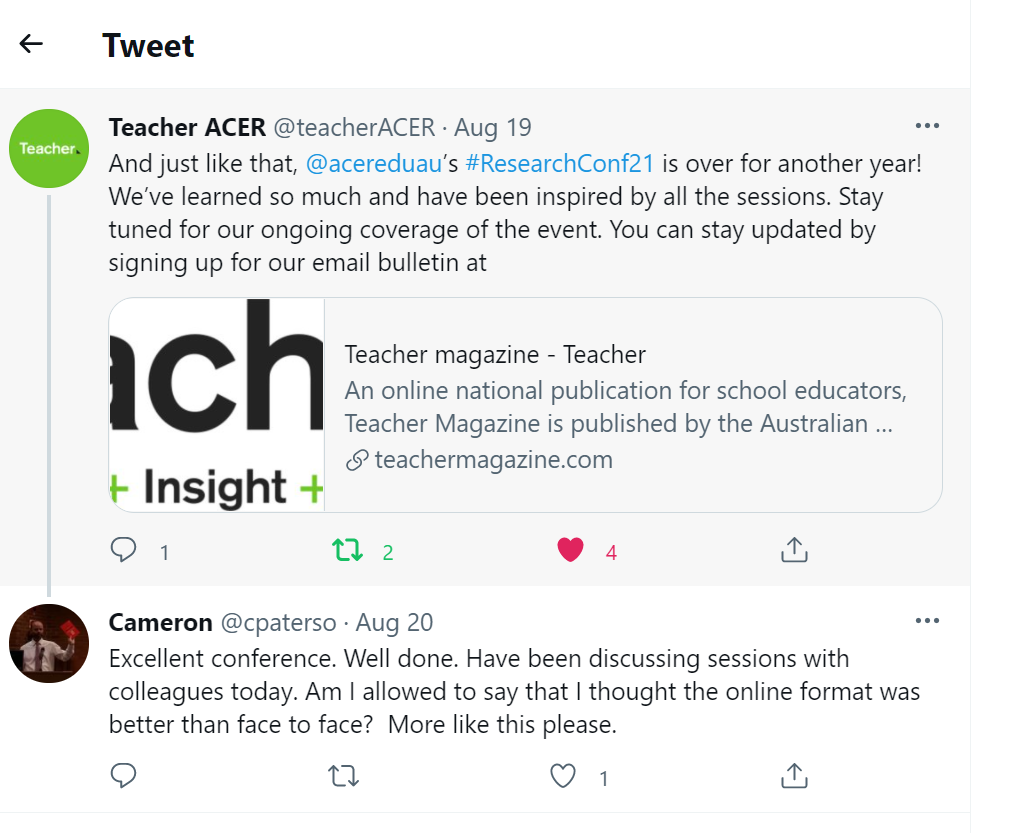
Advancing global thinking on student learning at Research Conference 2021
ACER news 25 Aug 2021 6 minute readACER’s annual Research Conference took place completely online for the first time in 2021.
In 20 sessions over four days, leading education researchers and practitioners from around the world interrogated the theme ‘Ensuring excellent progress for every student’. They approached the topic in diverse and fascinating ways, from the strategic – system-level challenges, the role of curriculum in describing student progress and ensuring accountability in assessment, for example – to the specific, such as the teaching and learning of defined student cohorts and domains.
Along the way, they engaged with an audience of educators, academics and policymakers across systems and sectors in Australia, the UK, the US, Singapore, Brunei, the UAE, South Africa, Malaysia, Indonesia, and beyond.
The result was a broad-ranging and thought-provoking event that advances global thinking around measuring learning progress.
Challenging keynotes
The program opened on Monday 16 August with a keynote address by ACER Chief Executive Professor Geoff Masters, who explored the limitations of describing student learning in the context of year-level expectations. The goal of ensuring every student is allowed to make excellent progress is ‘an urgent moral challenge’ requiring ‘a different way of thinking about the nature of learning’ and ‘a paradigm shift’, Professor Masters said. But the degree of change necessary to achieving this would not come easily.
‘It’s a big challenge to the status quo,’ Professor Masters said. ‘Governments are generally going to be wary of change of this kind.’
Read Professor Masters’ paper.
RMIT Emeritus Professor Dianne Siemon continued to question the effectiveness of measuring learning progress against year-level expectations in her Karmel Oration – a regular fixture in the Research Conference program that commemorates former ACER Council member and Chair Professor Peter Karmel. Professor Siemon emphasised the importance of including practitioners in the creation of learning progressions, in order to produce results ‘that make sense to teachers, clearly relate to their purpose, and are seen to add value to their practice’.
Professor Siemon said working towards excellent progress for all students relied on providing valid assessment tools that allow us to identify starting points, and targeted teaching advice to support teachers to address student learning in relation to what’s important.
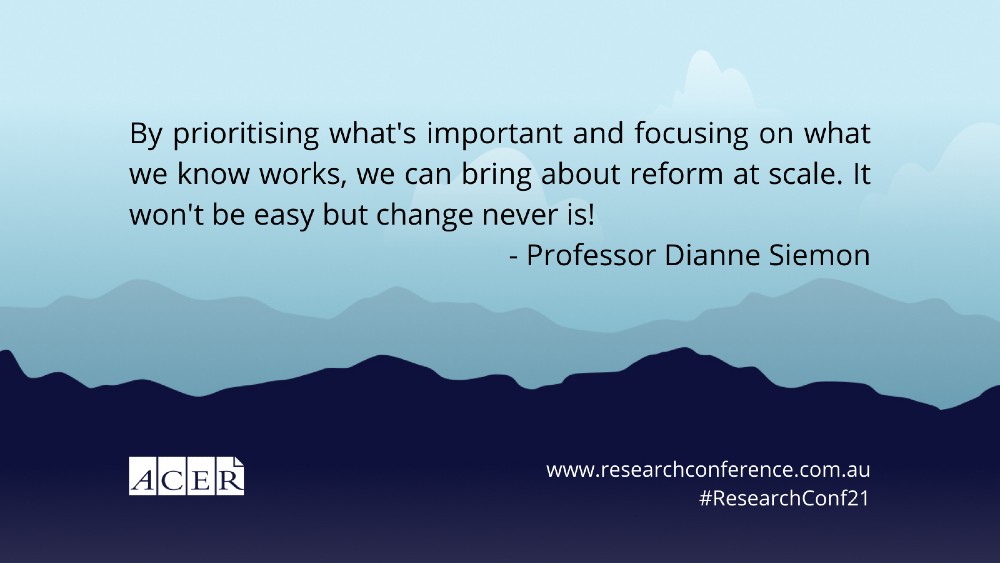
Read Professor Siemon’s paper.
In separate keynotes, Vanderbilt University’s Professor Rich Lehrer and the University of California, Berkeley/University of Melbourne Professor Mark Wilson expanded upon their work to produce an innovative project that blends the productive characteristics of summative and formative assessments. The result, they explained, is an assessment that produces actionable information for teachers on improving classroom instruction while meeting system demands of psychometric rigour. Read papers by Professor Rich Lehrer and Professor Mark Wilson.
Learning progressions in action
University of Melbourne researchers Dr Emily White and Dr Toshiko Kamei also presented separately on a joint project: SWANS/ABLEs, a suite of learning progressions-based tools designed to support teachers of students with additional learning needs.
‘Everyone can learn and get better at something, regardless of where they start,’ Dr White said. Furthermore, teachers are expert at describing that growth, and evidence-based tools should support them to do that.
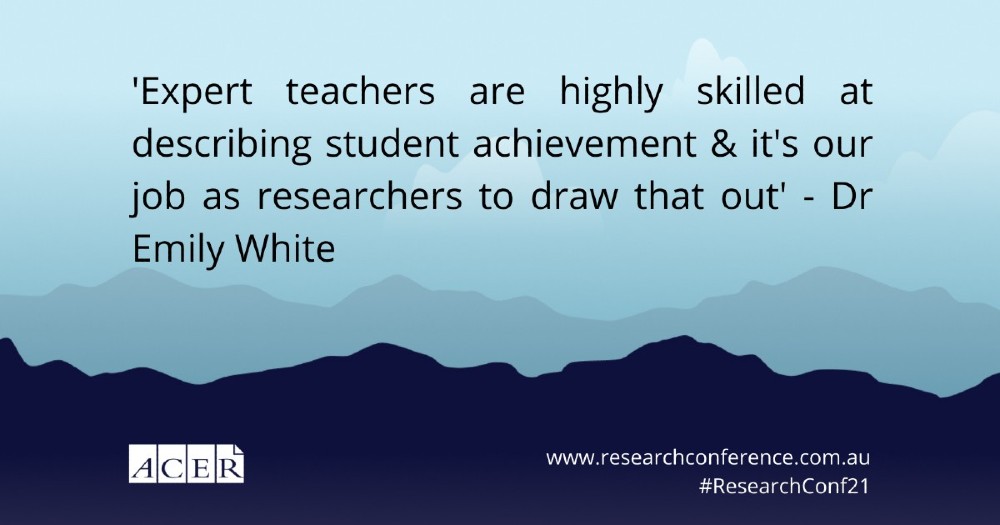
Read papers by Dr Emily White and Dr Toshiko Kamei.
Elsewhere in the Research Conference 2021 program, we were privileged to hear from University of Queensland researchers Dr Marnee Shay, Dr Jodie Miller and Dr Suraiya Abdul Hameed on exploring excellence in Indigenous education in Queensland’s secondary schools, and how learning progressions support the teaching of science (the University of Colorado Boulder’s Dr Erin Furtak), Visual Arts (the University of New South Wales’ Dr Karen Maras) and History (the University of Tasmania’s Dr Louise Zarmati). ACER researchers introduced us to the general principles of learning progressions (Charlotte Waters), measuring progress in collaboration skills (Conference Program Chair Dr Claire Scoular) and how teachers use insights from large-scale student assessments to inform teaching (Dr Sarah Richardson and Dr Sladana Krstic on the Scottish National Standardised Assessments), among other fascinating presentations.
Putting research into practice
While all presentations offered valuable insights for practitioners, two sessions in particular highlighted the teachers’ perspective. In the concluding event on day one, leaders from Queensland’s Mansfield State High School shared their experience of using ACER’s PAT assessments and teaching resources to improve learning for all students. The final session in the program on Thursday 20 August featured Victorian school leaders Tegan Knuckey (Balwyn High School) and Anthony Hockey (St Mary’s Primary School) describing practical innovations in student reporting based on research by ACER’s Dr Hilary Hollingsworth and Jonathan Heard on rethinking traditional A-E grading. Read the paper.
Catch up on demand
Couldn’t join us? You can purchase recordings of all Research Conference 2021 events (excluding masterclasses) in our Research Conference On Demand package. Find out more and sign up for news of Research Conference 2022, scheduled to be held in Sydney from 21-22 August.

